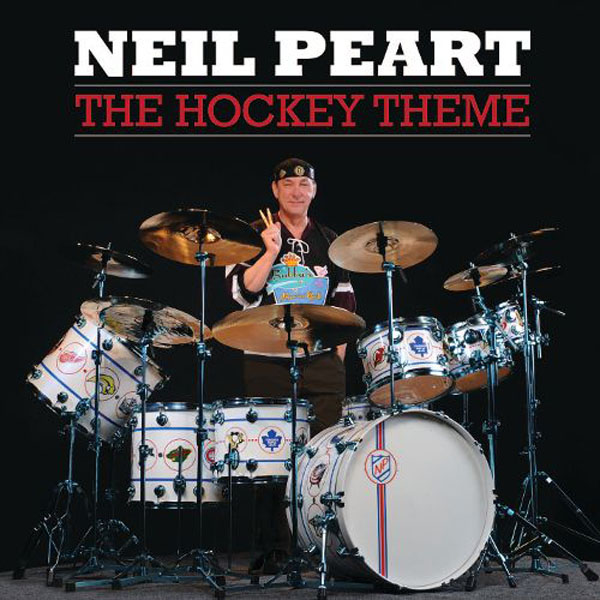Hockey Anthem A Rush
Rock Legend Neil Peart Says He Put Heart And Soul Into New Version Of Sport's Classic Theme Song
By Dave Feschuk, Toronto Star, January 14, 2010

When Rush, the rock band, was getting increasingly popular in the 1980s, Neil Peart, the drummer, remembers the push from agents and promotors: Forget arena rock, the money men were saying, Rush should be a football-stadium act. Why sell 20,000 tickets when 80,000 was possible?
"I made the comment at the time, 'Look, we're a hockey team. We're not a football team,"' Peart said. "And we went back to the arenas."
If big rock bands and hockey teams have always found common ground in their nomadic existences and overlapping office spaces, certainly Peart shares another trait with the ice-bound greats. He's a glutton for practice. Witness the preparation involved in recording his version of "The Hockey Theme," the former Hockey Night In Canada anthem that changed stations to TSN a couple of years back.
Peart's percussion-imbued take on the classic tune, pounded out on the usual zillion-piece kit and complete with a horn section, debuts Thursday night on TSN, and it runs exactly one minute, a veritable eyeblink for the king of marathon drum solos. But Peart said he worked on the piece for untold hours.
"I spent, honestly, two months on that one minute of music, refining that part and rehearsing it," Peart said in a telephone interview. "It was one of the great experiences of my life. ... We had one minute. And basically I said, 'I want to get everything I know into this minute."'
Peart, 57, now mostly lives in Santa Monica, Calif., the native land of his wife, photographer Carrie Nuttall, but he grew up in St. Catharines, where he joined his father on Sunday night pilgrimages to Garden City Arena, then home to the junior affiliate of the Chicago Blackhawks. And though he said he's not a rabid fan of team sports, he acknowledged that turning on the hockey game on a snowy night - this during his frequent visits to his home in Quebec's Laurentians - "just feels right."
Since bandmates Geddy Lee and Alex Lifeson were Willowdale school friends of Steve Shutt, the Montreal Canadiens hall of famer, Peart said it wasn't unusual for the members of Rush, on an off night on tour in the late 1970s and 1980s, to take in a Canadiens game in Atlanta or Kansas City or wherever their travels took them.
"It was a golden time," Peart said.
Peart, for his part, was never much of a hockey player. He's more a doer of endurance sports, from cross-country skiing to snow-shoeing to cycling. Who says the rock-and-roll lifestyle will kill you?
A recent British study determined that in the course of a typical concert, a drummer, specifically Clem Burke of Blondie fame, can elevate his heart rate and burn calories at a similar rate as a top-level soccer player. Peart said he's game for "three or four hours" on the cross-country ski trails.
"I found drumming gave me the endurance to try those (long-distance) sports," Peart said. "It's interesting. I've known quite a few good athletes that can't begin to play a beat on the drum set. Most team sport is about the smooth fluidity of hand-eye coordination and physical grace, where drumming is much more about splitting all those things up. You're getting one hand to do one thing, your feet to do another thing. It's this dis-coordination that makes a lot of sophisticated drumming possible. It's intrigued me that people that have that natural athletic ability, it doesn't translate to drums."
Few of those folks with natural athletic ability, no matter how much of it, have played in as many sporting meccas as Peart. Rush even broke their no-stadium rule a while back and played a Brazilian soccer venue. But when the band tours, Peart prefers it be indoors, with a Zamboni parked not far from the stage.
"In an arena, when the lights go up bright, I can see every little circle of every little head. That's an important distinction to me," he said. "I felt that in some of the bigger venues, the soccer stadiums and the football stadiums, it's just a mass. You're not playing to people anymore. There's a big psychological difference there. We belong in hockey arenas, not football stadiums."